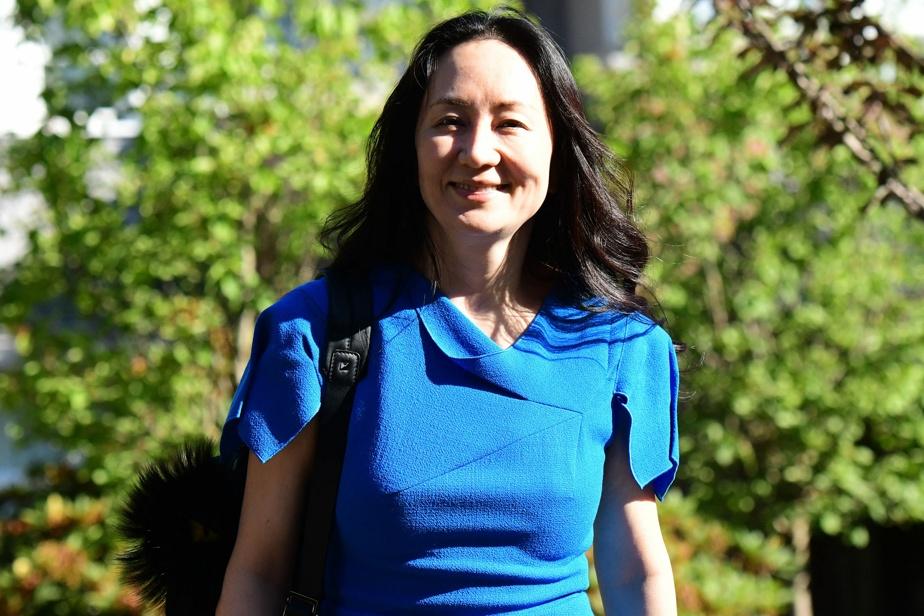(Vancouver) The United States has assembled a "botched" case whose evidence is riddled with holes, against Meng Wanzhou, who does not meet the necessary criteria to result in an extradition, pleaded on Friday the lawyers of the chief financial officer of the Chinese giant Huawei.
The Canadian PressEric Gottardi was the first defense team lawyer to respond to the prosecution's case in the Supreme Court of British Columbia. MmeMeng is facing an extradition request from the United States, which wants to bring the Chinese businesswoman for fraud in federal court in New York.
According to US authorities, Meng Wanzhou lied during a presentation to HSBC Bank about Huawei's ties to Skycom, which allegedly did business in Iran. It would thus have put the bank at risk of violating American sanctions against Iran.
In court, Ms.eGottardi told Judge Heather Holmes that the United States, represented by counsel for the Attorney General of Canada, had failed to demonstrate clearly how the actions of MmeMeng constituted a fraud.
Meng Wanzhou and Huawei denied the charges.
“The alleged deception is ambiguous at best and the risk of economic loss to the alleged victim, HSBS, is entirely illusory,” MeGottardi told the magistrate.
MsMsMeng's extradition hearing is long overdue and is finally getting down to business nearly three years after her December 2018 arrest at Vancouver airport . An arrest that greatly deteriorated the relationship between Canada and China.

Soon after, two Canadians in Chinese territory, Michael Kovrig and Michael Spavor, were arrested in what was widely seen as retaliatory action. Since then, Prime Minister Justin Trudeau has promised to continue working to secure their release.
On Friday, the defense of star lawyers took on government claims that MsmeMeng's presentation to HSBC executives was an intentional attempt to separate Huawei and Skycom in order to reassure the bank that it was not at risk of violating the sanctions against Iran.
One of the government's lawyers, Robert Frater, argued that MsmeMeng arranged the presentation after a Reuters report appeared that Skycom had attempted to sell in Iran equipment manufactured by Hewlett-Packard. A news that would have alarmed the HSBC Bank.
According to Me Frater, HSBC has the right to expect honest and transparent information from its customers in order to make decisions about the financial services it she wants to give. HSBC was deprived of this right by the deceptions of Mrs me Meng, pleads the lawyer of the government.
As a result, HSBC would have been at serious risk of loss, including financial loss, but also risked reputational damage and significant penalties.
In defence, Me Gottardi dismissed the claim as "vague and shifting theories" about hypothetical risks.
Rather, he argues that MsmeMeng's presentation was factual and that there was not a shred of evidence to link this presentation to any decision by HSBC that could have expose them to a real risk of civil or criminal liability.
Another lawyer representing Mrs. meMeng, Frank Addario, argued that the file submitted by the United States contained “no evidence” showing that Skycom or Huawei violated the sanctions. Americans.
According to documents submitted in court by the defence, Skycom allegedly made payments from an account in a Chinese bank to the account of a British firm at a branch of HSBC in the United Kingdom. However, HSBC would have processed the transaction from a US branch.
According to Mrs. Meng's lawyers, if HSBC violated US sanctions by processing the transaction from the US, it was the bank's fault, not their client's .
Eight years after that famous presentation, the risk of a lawsuit against HSBC never materialized, the defense noted.
Government lawyers have repeatedly said in court that the judge's role in an extradition hearing is to determine whether the requesting state's request contains sufficient evidence to support a charge.
They warned Judge Holmes that she would exceed her mandate if she delved too deeply into the detail of the evidence, which must instead be done in the context of a trial.
In defence, Ms. Gottardi urged Judge Holmes not to see her role as that of a mere clerk who is asked to approve the extradition request, but rather like that of a judge responsible for determining whether the evidence is sufficient to accuse Mme Meng of what she is accused of.
Ms. Meng’s extradition hearing is expected to end next week.
